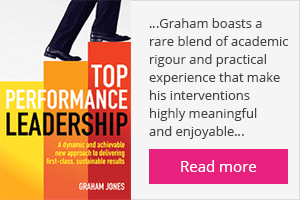I’d played squash almost every day from the age of 11 and professionally from age 17, so the thought of retirement was frightening. The decision to retire and what to do next is always tough on a professional ‘athlete’; for most, it’s all we have done.
Looking back all those years, nearly 20, this was the most worrying time for me. Niggly, chronic low back injuries were forcing me to quit the squash circuit and I didn’t feel as if I had prepared for any life after squash.
19 years on though, with a Master of Osteopathy and an Honours Degree in Sport Science and Injury Rehabilitation, I realise how valuable and how much professional squash prepared me for the future.
My squash career had its fair share of ‘ups and downs’. Firstly, at 17, I had to leave friends and family at home in Guernsey to live in Nottingham to embark on this career. The media coverage required for the financial rewards in squash were not big and therefore I managed myself, my training, coaching, entering tournaments, sponsorship deals and contracts and buying my first apartment. For a teenager all this in itself requires commitment, organisation and self-discipline.
Then came the battle with my temperament. Most of my training and preparation was directed towards winning the ‘Wimbledon of squash’, the British Open, which no British female had won in 20 years. I lost in the 4 finals I reached and in my 3rd at Wembley conference centre; I not only lost the title but also my temper with it. I subsequently incurred a fine and a ban. Much media coverage followed and a live interview on Grandstand, so not all bad!
My battle with my temperament brought me to Graham Jones, sport psychologist at Loughborough University, whom I worked with for the next year. Training the mind was some of the hardest training I did for squash; it required patience, understanding and commitment but I finally won the British Open on my 5th attempt, cool calm and collected and was awarded the MBE a few years later.
When the time came to move on and retire from squash I didn’t realise how many skills I had acquired to equip me for life after professional sport. Competitive athletes require mental toughness, which, based on Graham’s ground-breaking research, is the ability when under pressure, to stay in control under stress, strengthen self belief, channel motivation to work for you and direct focus to things that really matter. All this enables you to thrive on pressure, so whether it is on a squash court, in an exam room or treating a patient, these skills are invaluable and transferable.
The structured life I led as a professional squash player enabled me to develop a structured approach to start my new career; organisation, planning and goal setting seemed to be the natural way to go about it. Although I now have my own osteopathic clinic in Ealing, West London, it took many years of patience, discipline and hard work to get to this point. I spent years as a sport massage therapist and personal trainer but always knew that this wasn’t enough. Embarking on a 5-year (3 years part-time, 2 full-time) degree course in osteopathy required plenty of discipline and self-belief and looking back, my competitive spirit and experience in pre-match preparation i.e. controlling nerves, definitely helped me to prepare for the numerous practical and written exams throughout the course.
On graduating there was another big hurdle – setting up a clinic, finding patients, getting experience in the real world. I knew it was essential to use the first few months, which inevitably would be quiet, to set up my business. Using the disciplined and planned approach I gained from being an elite athlete, I was able to use this time effectively. Strangely I always remember a tutor of mine saying that she had never watched so much daytime TV as she did in her first 6 months out of college. In the first 3 months I had a website up and running, a part-time associate osteopath position and had started my own clinic Osteopath-West, in a personal training studio, in fact opposite the Ealing Squash and Fitness Club, so not much time for daytime TV!

